Specification
- इन्स्ट्रुमेंट
- प्रकार
- साहित्य
- अट
- तंत्रज्ञान
- पोर्टेबल
- रिचार्जेबल
- फोल्डेबल
- निर्जंतुकीकरण
- जलरोधक
- प्रकार वापरा
- Laparoscopy Surgery
- वापर
- Hospital
- प्रदर्शन
- ऑपरेटिंग प्रकार
- उर्जा स्त्रोत
- आकारमान (एल* प* एच)
- सेन्टिमीटर (cm)
Trade Information
- Minimum Order Quantity
- 1 तुकडा
- पुरवठा क्षमता
- प्रति महिना
- वितरण वेळ
- दिवस
- पॅकेजिंग तपशील
- Plastic Packaging with Label, Cardboard Box
- मुख्य निर्यात बाजार
- , , , , , , , ,
- मुख्य देशांतर्गत बाजार
- प्रमाणपत्रे
- ISO 13485, MD 5, MD 42
About
A laparoscopic bipolar forceps is a surgical instrument used during minimally invasive surgeries. It enables surgeons to grasp and manipulate tissues while also delivering electrical energy to coagulate or cut tissue. The bipolar design means that the electrical current passes between two electrodes, minimizing thermal spread to surrounding tissues. This makes it particularly useful for controlling bleeding and ensuring precise dissection in procedures such as laparoscopic cholecystectomy, hernia repairs, and other abdominal surgeries. Its use enhances visualization and reduces recovery time compared to traditional open surgery.
Product details
|
Material |
Plastic |
|
Place Of Origin |
India |
|
Country of Origin |
Made in India |
|
Category |
Laparoscopic Instruments |
|
Type |
Bipolar Forceps |
|
Size |
5mm |
|
Shape |
Sealer Cutter |
|
Brand |
Optec |
|
Color |
Black & Blue |
|
Size/Dimension |
5mm |
|
Usability |
Reusable |
|
Sterile/ Non Sterile |
Non-Sterile |
|
Usage/Application |
Laparoscopy surgeries |
|
Disposable/ Reusable |
Reusable |
|
Model Name/Number |
VK51009 |
|
Packaging Type |
Box |
Precision and Performance
Our bipolar forceps offer exceptional accuracy and reliability in hospital settings. Designed for use in delicate laparoscopic procedures, the forceps enable surgeons to perform electrosurgical operations with confidence. The manual operating system maximizes tactile feedback, while the stainless steel and plastic build ensures durability and hygiene.
Sterilization and Safety
These forceps can be supplied in both sterilized and non-sterilized forms, depending on hospital requirements. Their waterproof construction facilitates thorough sterilization processes before and after each use, meeting stringent hospital standards to ensure patient safety and infection control.
Versatile Application in Laparoscopy
Ideal for various laparoscopic surgeries, these forceps suit a wide array of medical applications, from general surgical procedures to specialized interventions. As essential basic surgical instruments, they simplify complex tasks, contributing to improved patient outcomes and surgical efficiency.
FAQs of Laparoscopy Bipolar forceps:
Q: How are laparoscopy bipolar forceps used during surgery?
A: Surgeons utilize laparoscopy bipolar forceps during minimally invasive surgical procedures to grasp, manipulate, and coagulate tissue. The bipolar function allows precise energy delivery to seal blood vessels, minimizing bleeding and tissue damage in laparoscopic surgeries.Q: What sterilization options are available for these forceps?
A: Our bipolar forceps are available in both sterilized and non-sterilized variants. They are constructed from waterproof materialsstainless steel and plasticthat allow for thorough autoclaving or chemical sterilization according to hospital protocols.Q: When should these forceps be selected over unipolar instruments?
A: Bipolar forceps are preferred when controlled, localized coagulation is needed without the risk of electrical current spreading through the body, which can occur with unipolar devices. This makes them optimal for sensitive laparoscopic procedures where precision is paramount.Q: Where are these instruments typically used?
A: These forceps are specifically designed for use in hospital operating rooms during laparoscopic (minimally invasive) surgeries. They are essential basic surgical instruments found in general, gynecological, and specialized laparoscopic procedures.Q: What are the benefits of using stainless steel and plastic in these forceps?
A: The combination of stainless steel and medical-grade plastic ensures ergonomic handling, corrosion resistance, ease of cleaning, and enhanced durability, making the forceps suitable for repeated surgical use under demanding conditions.Q: Can these forceps be recharged or require external power?
A: No, these instruments are manually operated and do not require recharging or any external power source, which simplifies operation and maintenance during surgical procedures.Q: How does the manual operation enhance the surgical process?
A: Manual operation provides surgeons with direct tactile feedback and precise control over movements, enabling delicate tissue manipulation, which is crucial in laparoscopic surgeries where accuracy determines successful outcomes.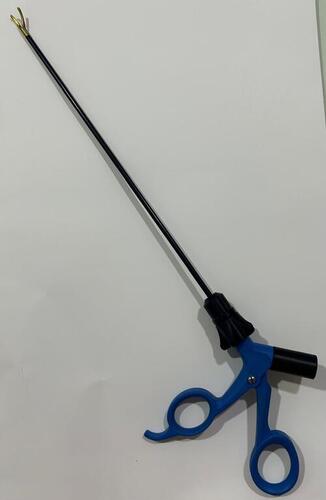
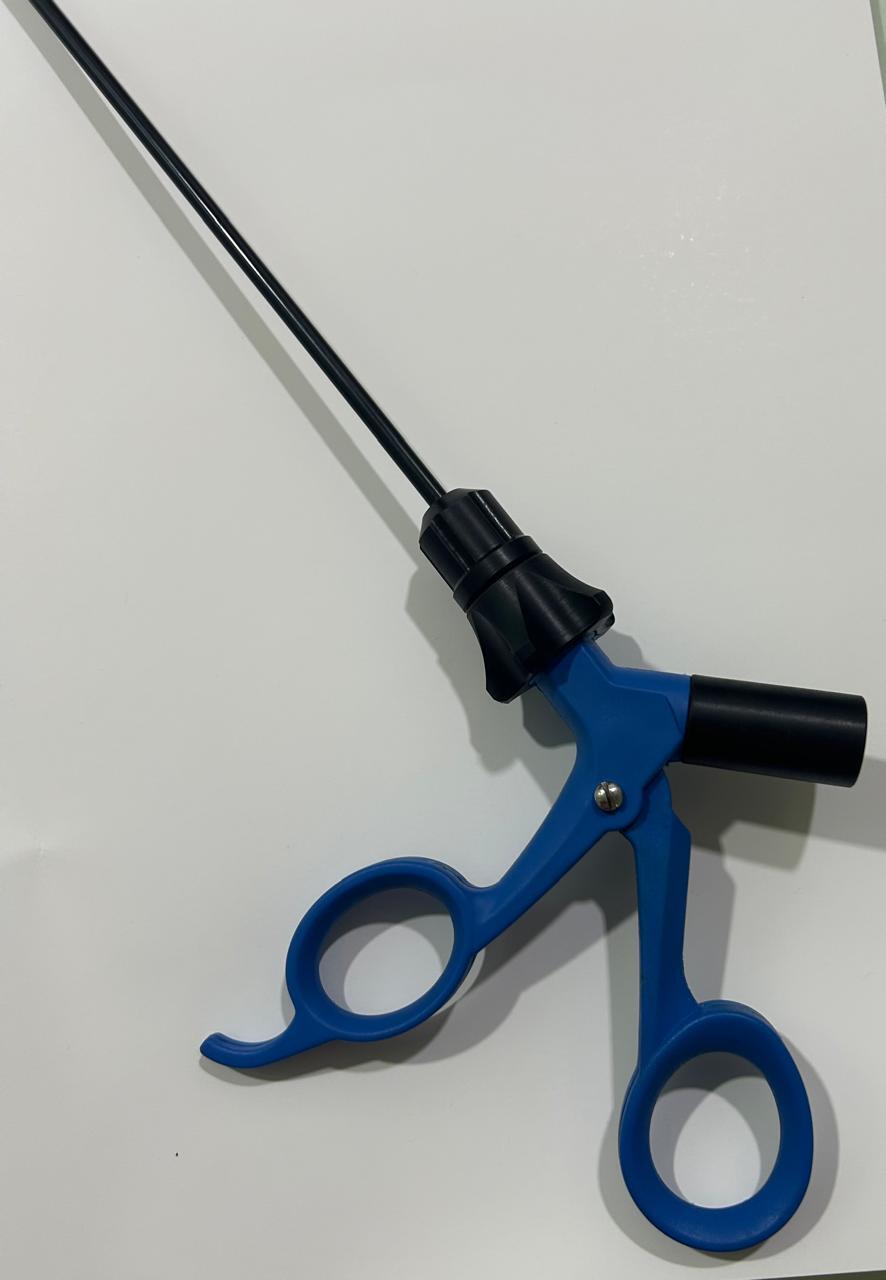

Price: Â
- 50
- 100
- 200
- 250
- 500
- 1000+
अधिक Products in Laproscopy Instruments Category
रेचेटसह टेनाकुलम 10 एमएम फोर्सेप्स
किमान ऑर्डरची मात्रा : 10
मापनाचे एकक : युनिट/युनिट
किंमत एकक : युनिट/युनिट
निर्जंतुकीकरण : होय
जलरोधक : नाही
प्रकार : फोर्सेप्स
व्हीके सोप्रो ट्रॉकर आणि 5 एमएम सर्पिल कॅन्युला
किमान ऑर्डरची मात्रा : 10
मापनाचे एकक : युनिट/युनिट
किंमत एकक : युनिट/युनिट


 चौकशी पाठवा
चौकशी पाठवा
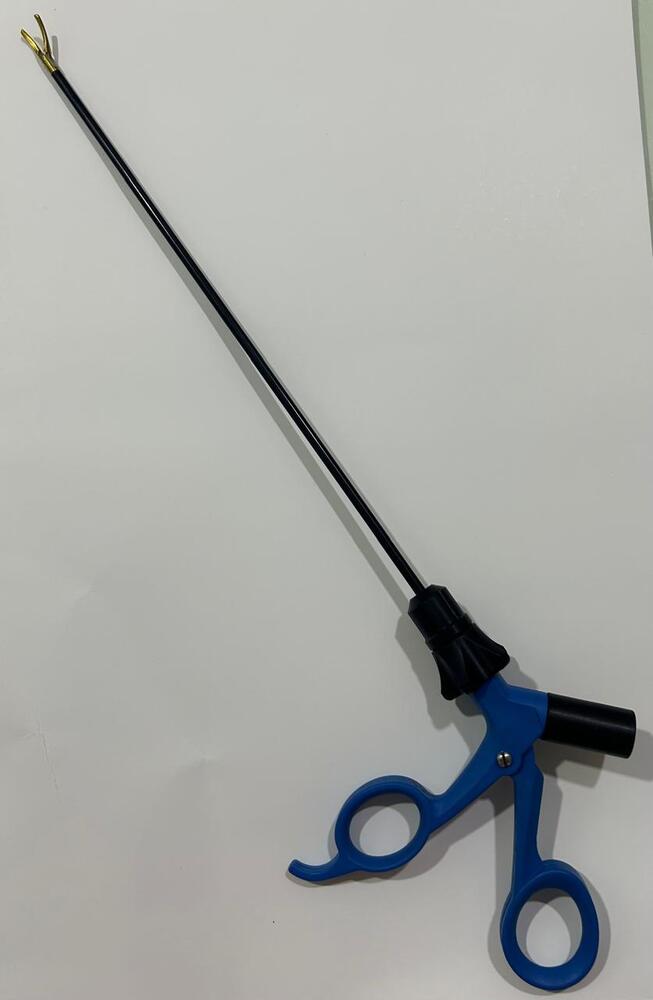
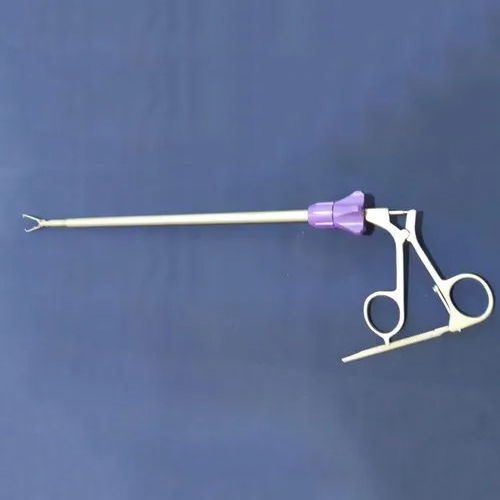
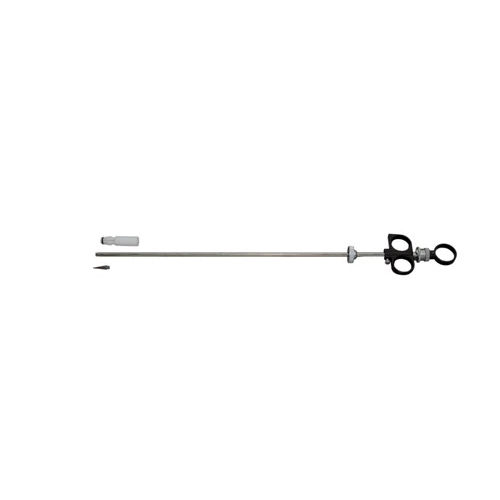
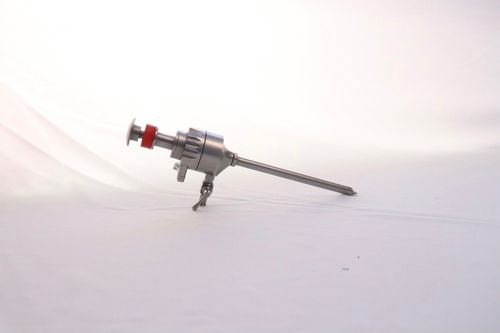


 चौकशी पाठवा
चौकशी पाठवा एसएमएस पाठवा
एसएमएस पाठवा